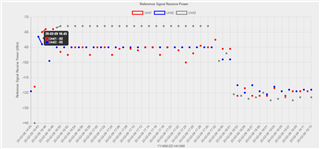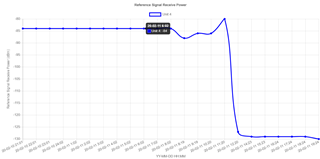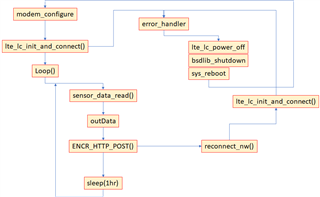Dear,
Im trying to measure the RSSI with THINGY:91, I found on the document nrf91_at_commands_v1.1.pdf about
1. AT+CSQ
+CSQ: <rssi>,<ber>
Note: Not detectable, RAT not supported. Use +CESQ and %CESQ for E-UTRA signal quality.
2. AT + CESQ
+CESQ: <rxlev>,<ber>,<rscp>,<ecno>,<rsrq>,<rsrp>
<rsrp>
0 – RSRP < −140 dBm
1 – When −140 dBm ≤ RSRP < −139 dBm
2 – When −139 dBm ≤ RSRP < −138 dBm
...
95 – When −46 dBm ≤ RSRP < −45 dBm
96 – When −45 dBm ≤ RSRP < −44 dBm
97 – When −44 dBm ≤ RSRP
255 – Not known or not detectable
I am using AT+CESQ to find RSRP
and, i found some document about RSRP range:

https://wiki.teltonika.lt/view/RSRP_and_RSRQ
But, when I tested to measure it, i got:

I set the devices (3) in my freezer, and got the RSRP < -100dBm,
is it conflict here? On the document, they say: NO signal when RSRP < -100dBm, but, I measured -120dBm, and I still received the data from my THINGY:91 - it means : still signal
I am using Telia NB-IOT( Unit1) Telia LTE-M(Unit2) and Telenor LTE-M(Unit3)
My question is: RSRP vs Signal strength range? RSRP for no signal?
Thanks
BR,
Hoang Nguyen


